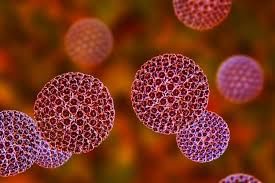Treatment of Cryptosporidiosis!
Treatment of Cryptosporidiosis
Homeopathic Treatment of Cryptosporidiosis
Acupuncture & Acupressure Treatment of Cryptosporidiosis
Psychotherapy Treatment of Cryptosporidiosis
Conventional / Allopathic Treatment of Cryptosporidiosis
Surgical Treatment of Cryptosporidiosis
Dietary & Herbal Treatment of Cryptosporidiosis
Other Treatment of Cryptosporidiosis
What is Cryptosporidiosis
Symptoms of Cryptosporidiosis
Causes of Cryptosporidiosis
Risk factors of Cryptosporidiosis
Complications of Cryptosporidiosis
Lab Investigations and Diagnosis of Cryptosporidiosis
Treatment of Cryptosporidiosis
Homeopathic Treatment of Cryptosporidiosis
Homeopathy relieves complaints like fever, nausea, diarrhea and resist infection by improving immunity. It treats the person as a whole. Treatment is constitutional. It means that homeopathic treatment focuses on the patient as a person, as well as his pathological condition. It balances the energy system, improves immunity and body functions. It naturally cures the root cause of disorder. Some of the homeopathic medicines for treatment of cryptosporidiosis are:
Aloe
Gamb
China
Carb V
Crot T
Iris V
Podo
Conventional / Allopathic Treatment of Cryptosporidiosis
Allopathic Treatment of Cryptosporidiosis includes the following medications:
Anti-parasitic drugs – nitazoxanide and Azithromycin
Anti-motility agents – loperamide and its derivatives
What is Cryptosporidiosis?
Cryptosporidiosis is a gastrointestinal disease whose primary symptom is diarrhea. It is also known as cryptosporidium infection. In most healthy people, a cryptosporidium infection produces a bout of watery diarrhea and the infection usually goes away within a week or two. But a cryptosporidium infection can become life-threatening without proper treatment.
Symptoms of Cryptosporidiosis
Fever
Nausea and Vomiting
Watery diarrhea
Dehydration
Weight loss
Stomach cramps or pain
Causes of Cryptosporidiosis
By swallowing water or beverages contaminated with stool from infected humans or animals
By eating uncooked food contaminated with Crypto
Swimming in water contaminated with cryptosporidium
Touching your hand to your mouth if your hand has been in contact with a contaminated surface or object
Having close contact with other infected people or animals
By exposure to human feces through sexual contact
Risk factors of Cryptosporidiosis
Parents of infected children
Child care workers
Animal handlers
Those who engage in oral-to-anal sexual activity
People traveling to developing countries
Swimmers who swallow water in pools, lakes and rivers
People who handle infected cattle
People who drink water from shallow, unprotected wells
Complications of Cryptosporidiosis
Malnutrition
weight loss
Severe dehydration
Inflammation of a bile duct
Inflammation of your gallbladder, liver or pancreas
Diagnosis of Cryptosporidiosis
Diagnosis of Cryptosporidiosis involves the following tests:
Acid-staining test
Stool culture
Checking liver and gallbladder function
Precautions & Prevention of Cryptosporidiosis
Avoid fecal exposure during sexual activity
Wash your hands with soap and water after using the toilet, changing diapers, and before and after eating
Wash all fruits and raw vegetables before eating
Limit swimming activities in lakes, streams and public swimming pools
Handle newborn farm and domestic animals with care
Drink boiled or filtered water



+1.svg)
